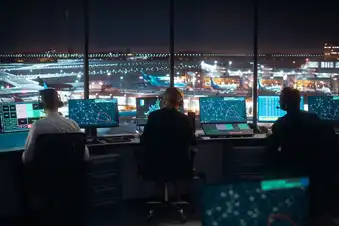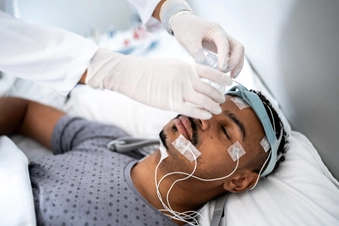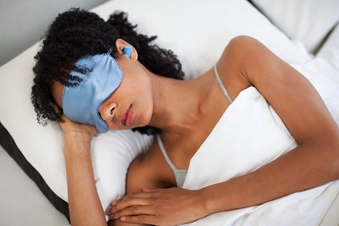Jobs That Wreck Your Sleep

Air Traffic Controller
News of air traffic controllers falling asleep on the job shows the difficulty of shift work. Even when lives are at stake, it's a challenge for some people to stay alert throughout the night. That's because their internal body clock -- sometimes called circadian rhythm -- may be out of synch with their schedule. Shift work disrupts this cycle, and many people have trouble adapting.

Network Administrator
The Internet has also created a new demand for shift workers. Network administrators make sure that Web-based services are available to users 24/7 -- so you can buy books, download music, or browse WebMD any time you like. The downside to all this shift work is that the workforce is more sleep deprived than in decades past. And that has risks.

Factory Worker
The manufacturing industry relies on shift work to avoid factory downtime and to maximize productivity. But there are costs. Compared to non-shift workers, shift workers are significantly more likely to get fewer than 6 hours of sleep on work days. Drowsy or tired workers can increase the risk of workplace injuries. Poor sleep has also been linked to high blood pressure, diabetes, and depression.

Senior Manager
If you have (or are) a cranky boss, too little sleep could be part of the problem. Senior managers deal with the stress of overseeing a team, and they often put in long hours. Studies show the more hours you work, the less you sleep. And one survey found a direct link between poor sleep and job dissatisfaction.

Cable News Reporter
The advent of 24-hour cable news created a whole new field of shift workers. Reporters, producers, and camera operators provide live news reports throughout the night. As more industries expand to 24-hour operations, the need for shift workers is growing. More than 15 million Americans now work evenings, nights, or other irregular shifts.

Nurse
Shift work is a time-honored tradition for hospital nurses. To provide continuous care to patients, many nurses also end up working long hours. Research suggests people tend to be less alert and focused during the last 4 hours of a 12-hour shift. This raises special concerns for jobs related to public health and safety.

Financial Analyst
Shift workers aren't the only ones losing sleep. Some financial analysts specialize in foreign markets, such as Europe or Asia. Keeping an eye on those markets can require working odd hours because of the time difference. Successful professionals also tend to work long hours. According to the Center for Work-Life Policy, 62% of high earners work more than 50 hours a week, and 10% work more than 80 hours.

Police Officer
To protect and serve the public all night and day, many police departments use rotating shifts. This ensures 24-hour coverage without singling out some officers for holidays or the worst hours. But rotating shifts have challenges of their own -- it's impossible to adapt to any one schedule. Alternating between day and night shifts is more problematic than switching between a day shift and an afternoon shift.

Medical Intern
Medical students may get used to cramming for exams, but the all-nighters don't end at graduation. As intermediate-level hospital staff, some residents are allowed to work in-house duty for up to 24 hours in a row. (They must have at least 14 hours free of duty afterward.) Studies show medical residents are twice as likely to crash their cars after a long shift. They're also more likely to make mistakes in diagnosing patients.

Airplane Pilot
Flying commercial planes deals a triple punch to a good night's sleep. Pilots face irregular hours, long shifts, and jet lag as they travel through multiple time zones. To avoid pilot fatigue, the FAA observes strict guidelines on flight time and rest time. In the 24 hours before completing a flight, pilots must have at least 8 hours of uninterrupted rest.

New Parent
There is one job that is legendary in its ability to wreck your sleep: parent. When a newborn wakes up every couple of hours, it's difficult for parents to get a solid stretch of deep sleep. One study found new moms sleep about 7 hours over the course of a night, but the sleep is fragmented and not refreshing. Luckily, the situation usually improves by the time baby is 16 weeks old.

Truck Driver
Truck drivers have long taken to the road at night, both to avoid daytime traffic and to manage tight delivery schedules. But this is one job where the consequences of poor sleep are well-documented. Roadway crashes are the top cause of work-related deaths in the United States, and drowsy driving is often a factor.

Bartender
With many bars open until at least 2 a.m., and around the clock in some cities, a bartender may end up working almost through the night. Some people are drawn to this type of schedule because they are "night owls" -- they are naturally more alert at night. The key to fully adapting to this shift is to keep the same schedule on your days off. But if you're a "lark," you may never adapt.

Shift Work Sleep Disorder
When your work schedule collides with your body's natural circadian rhythm, you're forced to try to sleep when you feel alert and work when you feel drowsy. This puts you at risk for shift work sleep disorder. The symptoms include insomnia, fatigue, irritability, decreased alertness, and trouble concentrating. Shift workers are also more likely to develop stomach problems and heart disease.

Tips for Working at Night
The best way to adapt to shift work is to stick to the same schedule, even on weekends. If this isn't possible, you're more likely to feel fatigued when working the night shift. But there are strategies that can help you stay alert. Try to work with others rather than alone. Drink a beverage with caffeine at the start of your shift. Walk around or get some exercise on your break. If napping is an option, give it a try.

When to Seek Help
If you've had work-related sleep problems for at least a month -- and they've affected your family or work life -- a sleep specialist may help. An evaluation can find underlying causes including medical conditions, emotional problems, substance abuse, medications, or poor sleep habits. If a shift work sleep disorder exists, a doctor can determine whether prescription drugs are safe and appropriate, given your personal health history and the risks of side effects.

Tips for Daytime Sleep
Although most people find it tough to sleep during the day, there are some tricks that can help. On your way home from work, wear dark glasses and stay out of the sun. Make your bedroom as dark as possible or wear an eye mask. Use earplugs to block out daytime noise. And create a bedtime ritual, like reading or a taking a bath, to signal to your brain that it's time to sleep.
Show Sources
Photo Credits:
1) gorodenkoff / Getty Images
2) Jetta Productions Inc / Getty Images
3) Nitat Termmee / Getty Images
4) poba / Getty Images
5) tomazl / Getty Images
6) South_agency / Getty Images
7) B Busco / Getty Images
8) kali9 / Getty Images
9) Tom Werner / Getty Images
10) Rathke / Getty Images
11) Oscar Wong / Getty Images
12) Jeremy Woodhouse / Getty Images
13) Fakur Syu / EyeEm / Getty Images
14) Oleg Breslavtsev / Getty Images
15) ljubaphoto / Getty Images
16) FG Trade / Getty Images
17) Photo Source / Getty Images
SOURCES:
Accreditation Council for Graduate Medical Education: "Resident Duty Hours in the Learning and Working Environment."
American Academy of Sleep Medicine: "Shift Work," "Circadian Rhythm Sleep Disorders," "Sleep & Caffeine."
American Sleep Association: "Shift Work Disorder."
Barger, L. New England Journal of Medicine, January 2005.
Basner, M. SLEEP, September 2007.
CDC: "Insufficient Sleep is a Public Health Epidemic," "Effects of Extended Work Hours on Intern Health and Safety."
Center for Work-Life Policy: "Extreme Jobs: The Dangerous Allure of the 70-Hour Work Week."
Cleveland Clinic: "Shift Work Sleep Disorder," "Circadian Rhythm Disorders."
Federal Aviation Administration: "Fact Sheet -- Pilot Flight Time, Rest, and Fatigue."
Luckhaupt, S. SLEEP, 2010.
MedlinePlus: "Modafinil."
Montgomery-Downs, H. American Journal of Obstetrics & Gynecology, November 2010.
Morgenthaler, T. SLEEP, November 2007.
Nakata, A. Journal of Sleep Research, January 2011.
National Institute for Occupational Safety and Health: "Work Schedules: Shift Work and Long Hours," "Overtime and Extended Work Shifts," "Plain Language About Shift Work," "Work-related Roadway Crashes."
National Sleep Foundation: "Shift Work and Sleep," "2008 Sleep in America Poll," "Longer Work Days Leave Americans Nodding Off on the Job."
Occupational Outlook Handbook: "Computer Network, Systems, and Database Administrators," "Financial Analysts," "Police and Detectives," "Aircraft Pilots and Flight Engineers."
Philips: "Sleep deprivation: a health hazard yet to be taken seriously."
Scott, B. Journal of Management, October 2006.
University of Florida News: "UF Study: Lack of sleep impairs job satisfaction, especially for women."
Volkow, N. Journal of the American Medical Association, March 18, 2009.
Witkoski, A. AAOHN Journal, April 2010.